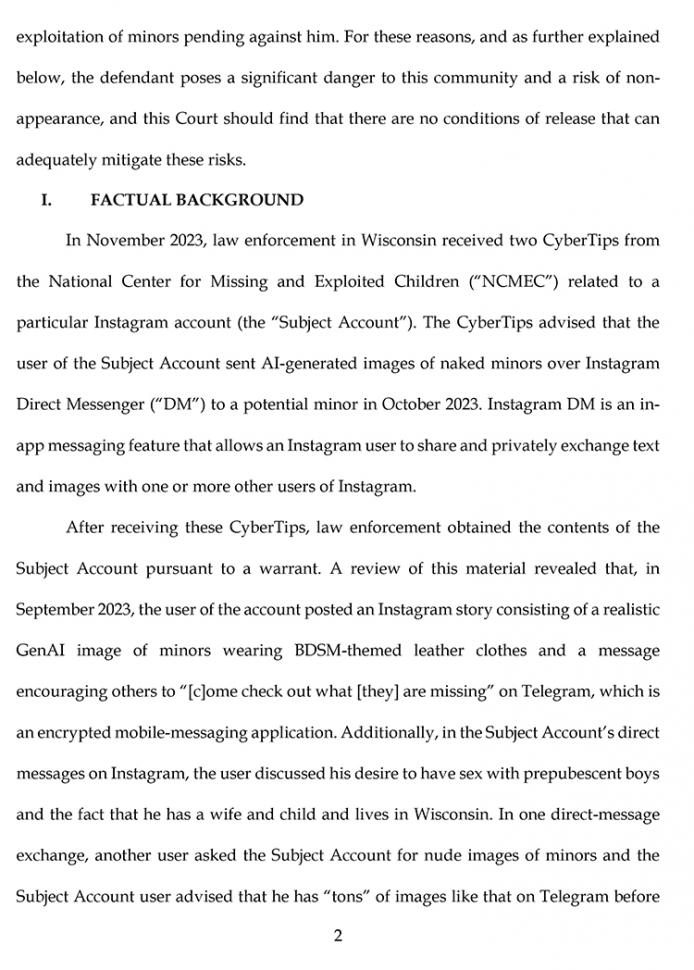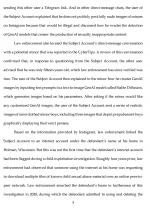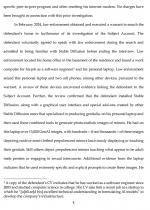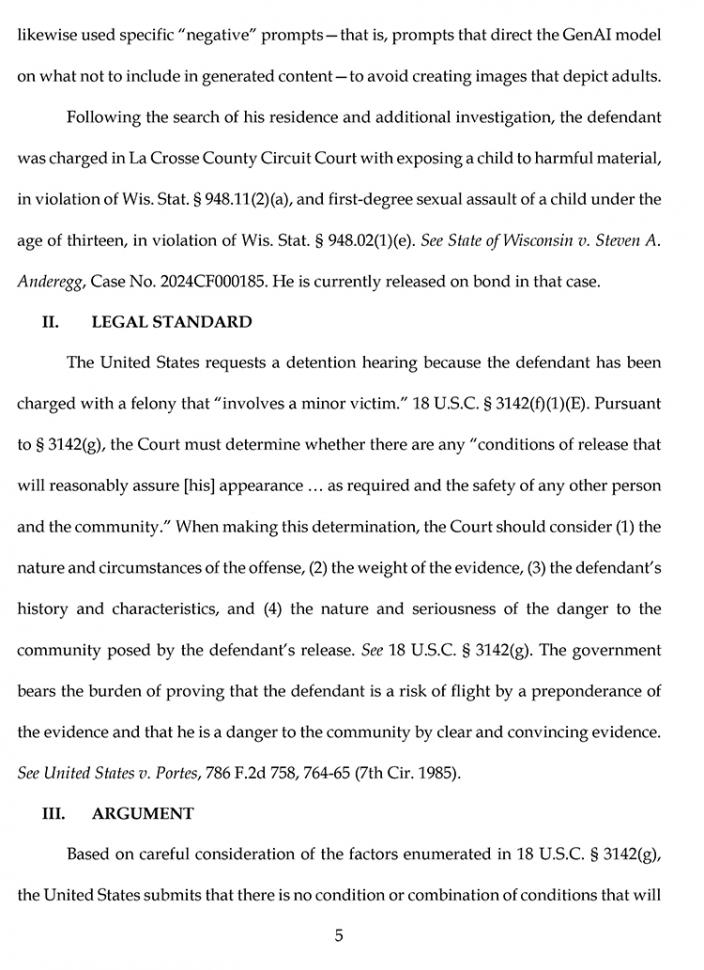Feds: Engineer Used AI Model For Child Porn
Man charged with creating "thousands" of sick images
MAY 21--A Wisconsin software engineer used an artificial intelligence program to create thousands of “hyper-realistic” images of prepubescent children engaged in sexual activity, according to investigators who allege that the accused man shared some of the photos with a 15-year-old boy.
A federal indictment charges Steven Anderegg, 42, with producing and distributing obscene  visual depictions of minors.
visual depictions of minors.
Anderegg, seen at right, used the Stable Diffusion generative AI model to make the illicit images, which showed minors “lasciviously displaying or touching their genitals” and engaged in sexual activity with adult males.
A search of Anderegg’s laptop revealed that he allegedly used “extremely specific and explicit prompts to create these images” via the text-to-image AI model, according a government court filing. He also allegedly used “negative” prompts to “avoid creating images that depict adults.”
Anderegg, investigators say, studied computer science in college and has worked as a software engineer since 2003. His CV lists a recent position at a startup where he used his “excellent technical understanding in formulating AI models.”
The “technologically savvy” Anderegg was able to evade detection by AI models that prohibit the production of “sexually inappropriate content,” according to prosecutors. Anderegg used Stable Diffusion, a graphical user interface, and “special add-ons created by other Stable Diffusion users that specialized in producing genitalia” to generate “photo-realistic images of minors.”
A search of Anderegg’s Instagram account revealed that the user posted AI-generated images of minors in bondage clothing and, in instant messages, “discussed his desire to have sex with prepubescent boys and the fact that he has a wife and child and lives in Wisconsin.”
In one IM chat, Anderegg “explained that he does not publicly post fully nude images of minors on Instagram because that would be illegal.” During an online discussion with a 15-year-old boy, Anderegg allegedly asked if the child wanted any “customized” images, and then sent the minor three images depicting “prepubescent boys graphically displaying their erect penises.”
Arguing that Anderegg should be locked up in advance of trial, prosecutors revealed that the defendant’s residence was searched in 2020 after law enforcement officials determined that someone using the home’s Internet connection sought to download “multiple files of known child sexual abuse material over an online peer-to-peer network.” No charges were filed in connection with that probe.
If convicted of the federal charges, Anderegg--who has no previous criminal convictions--fames a mandatory minimum of five years in prison. (4 pages)










